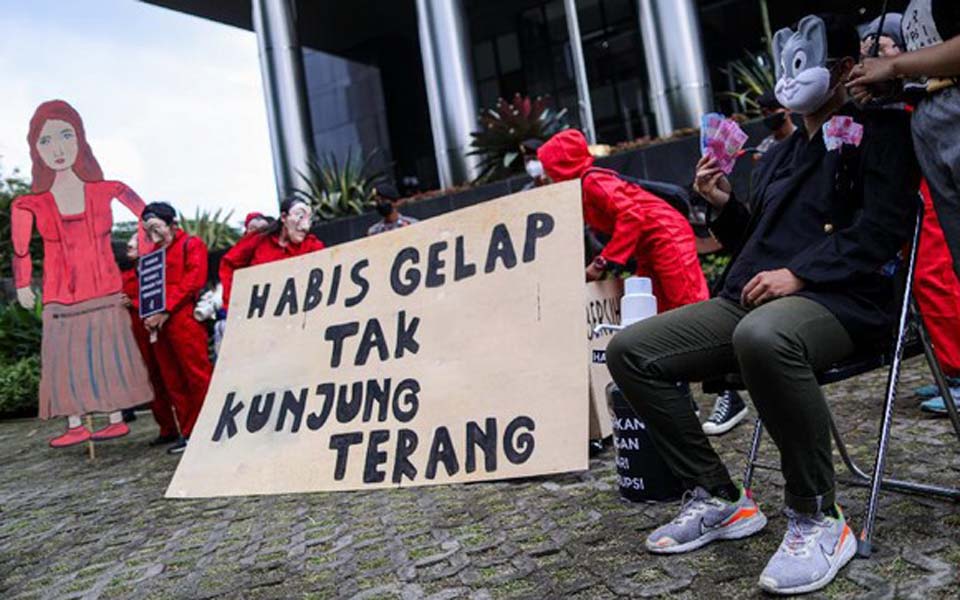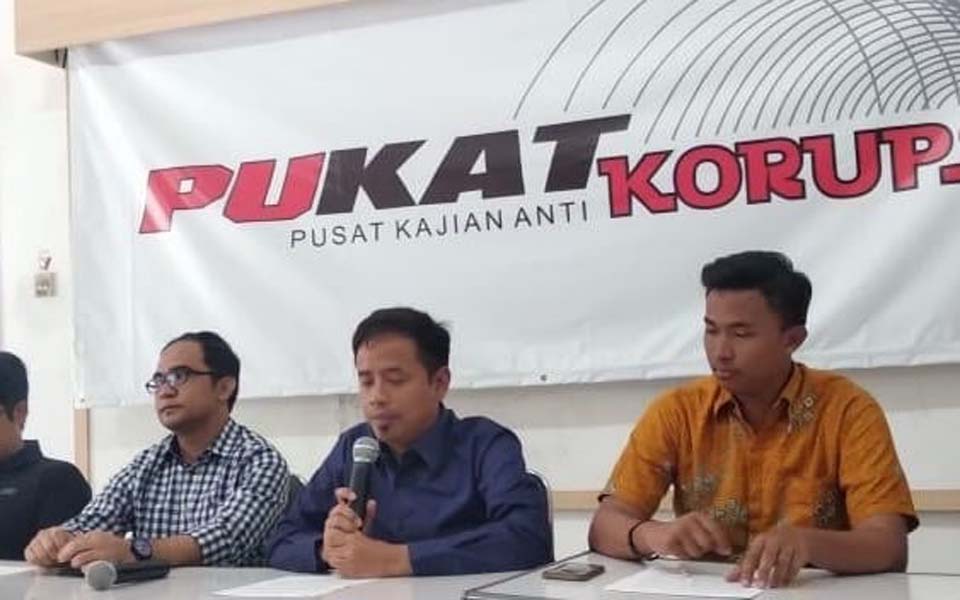Aryo Putranto Saptohutomo, Jakarta – The Corruption Eradication Commission's (KPK) independence score has plummeted since the enactment of Law Number 19/2019 which resulted in the agency coming under the authority of the executive.
This finding was conveyed by Transparency International Indonesia (TII) Administrative Democracy Department Program Manager Alvin Nicola in an explanation of an evaluative assessment of the KPK's performance – the 2023 Anti-Corruption Agency (ACA) Assessment.
"The public assessed the KPK's institutional independence rating to be as high as 83 percent in 2019. However it [has dropped to] only 28 percent in 2023", Nicola said when explaining the results of the assessment at an event titled Twilight of the Era of Strengthening the KPK organised by TII in Jakarta on Monday December 4.
In addition to this, TII also found a decline in human resources and the KPK's budget from 67 percent in 2019 to 56 percent in 2023.
Then in the dimension of the KPK's accountability and integrity, according to TII this also declined from 78 percent in 2019 to 61 percent in 2023.
For the dimension of detection, investigation and criminal investigation, this declined to 61 percent in 2023 from 89 percent in 2019.
In addition to this, the dimension of the KPK's cooperation and external relations in 2023 also plummeted to 58 percent from 83 percent in 2019.
The only dimension that did not decline greatly was education, prevention and outreach, which scored 81 percent in 2023 compared with 88 percent in 2019.
In the evaluation, which was conducted by TII over the period April-October 2023, the TII found there was a decline in the degree of the KPK's independence in the eyes of the public.
Nicola said that the public has doubts about the KPK's independence as seen from its handling of strategic cases, particularly those that involving politicians.
Nicola explained that they found five out of nine indicators that were assessed as poor related to the KPK's institutional independence.
First, the KPK's institutional independence since the KPK Law was revised in 2019 which included the agency as part of the executive.
Second, the mechanisms for appointing and terminating KPK commissioners became increasingly less independent by giving authority to the president to directly appoint and establish the KPK Supervisory Board for the first time without going through a selection mechanism.
Then the third factor was the strength of the KPK's investigations and prosecutions which also declined with the existence of criminal threats to people when the agency does not immediate destroy wiretap records that are not related to a case.
Nicola also highlighted the elimination of the status of KPK leaders as investigators and prosecutors.
The fourth issue was the KPK's operational authority which was assessed as not being independent because it is unable to recruit and train investigators independently, rather it has to cooperate with the police and Attorney General's Office.
And fifth is the alleged intervention by political forces that cannot be denied in the KPK's work as can be seen by several cases related to political actors.
"The only indicator that is still considered good regarding the independence and authority of the KPK is the power of recommendations", Nicola said.
Nicola said that the methodology used in the ACA 2023 evaluation was by asking the views of more than 100 experts and stakeholders nationally and regionally.
The experts came from government institutions, legislators, law enforcement officials, judicial institutions, business associations, state commissions, anti-corruption and development experts, legal experts, the mass media and civil society organisations.
He said that the KPK's performance was measured using 50 indicators which were divided into six dimensions. The methodology also divided the indicators into 14 internal support factors, 16 external support factors and 20 actual performance indicators.
The basis for the assessment was taken from Articles 6 and 36 of the United Nations Convention Against Corruption (UNCAC) and the 2012 Jakarta Principles as well as derivative commentary. Each indicator was given a score of three points (low, medium, high) in order to see the KPK's performance trends.
The study, said Nicola, integrated policy analysis, analysis of reports and interviews with experts using semi-structured question guidelines as well as focus group discussions with principle stakeholders.
The assessment was carried out between April and October 2023 to look at the KPK's performance in its entirety post the enactment of Law Number 19/2019 (the KPK law revisions).
[Translated by James Balowski. The original title of the article was "Skor Independensi KPK Anjlok Sejak Penerapan UU Baru".]















